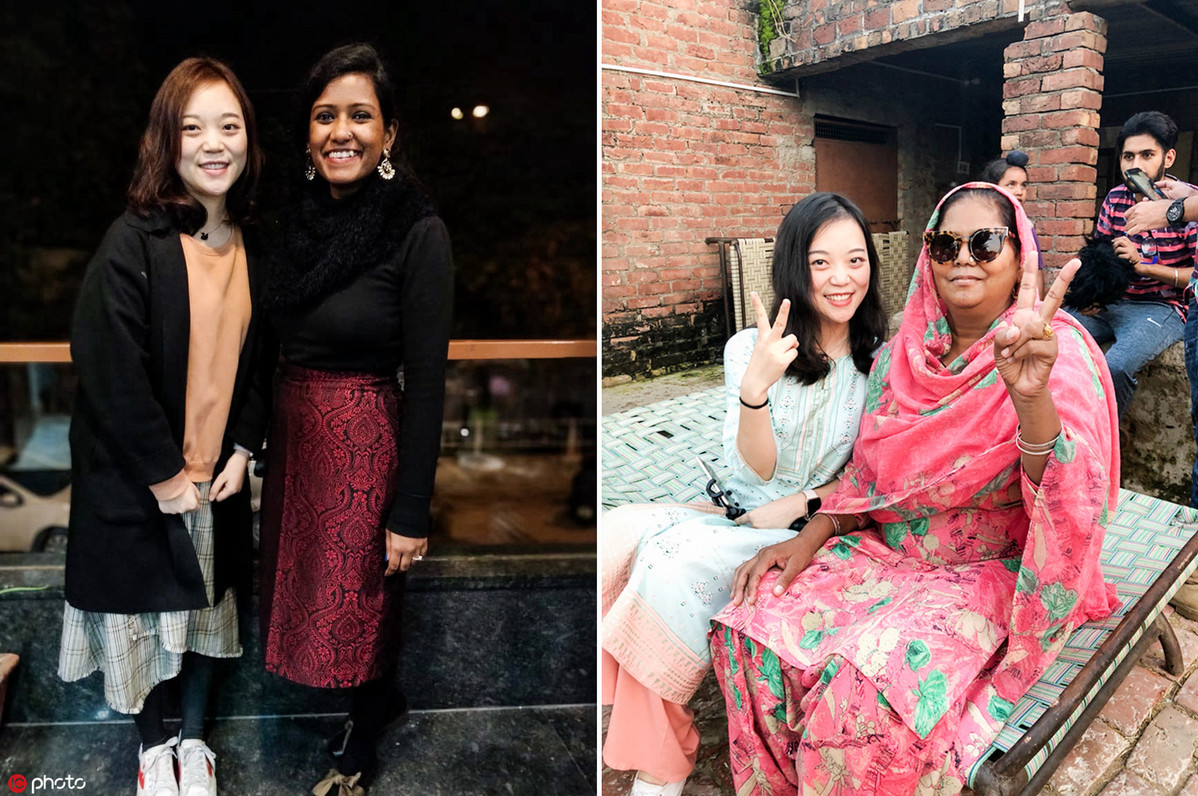Cyberstars in India get a lift from China
By Du Juan/Liu Kun | China Daily | Updated: 2019-09-16 07:08

A sari typically consists of a long swath of cloth that wraps around the waist, with one end draped over the shoulder, leaving one's bare belly exposed, so it's an interesting visual for Vmate followers.
Kumar's boss was not a fan at first, worrying that the mini-shows would affect the business. Gradually, however, the videos brought more customers to the store. The number of Suru fans has been increasing steadily. Now the boss has changed his mind, and he's a Vmate fan, too, Kumar said.
Launched in 2016, Vmate, owned by Alibaba's UC Web, initially offered full-length movies but later shifted to user-generated short videos.
In May, Alibaba announced an investment of $100 million in Vmate, demonstrating how serious it is about the growing social video app market-something it missed out on in China.
Many of the features Vmate offers parallel those offered by Byte-Dance's TikTok, which currently has more than 120 million active users in India. Other similar platforms, such as Facebook, WhatsApp and Snapchat, are also in the mix.
Cheng Daofang, chief executive of Vmate, said the app now has 30 million monthly active users worldwide. The company's overseas strategy is "local innovation", a strategy being applied to India that has proved effective in China, but with a more local angle.
Cheng believes that globalization will flow from localization.
"We have Chinese employees working in India, cooperating with Indian staff to explore quality content," he said. "During this process, the key is to understand local users, cultures and young Indians' lifestyles and thoughts.... We made correct decisions at the right time in India based on our preliminary studies of the market."
At the end of 2017, as Vmate accelerated, India's 4G network was also developing rapidly. It has provided strong hardware foundation for data-intensive videos.
From a cultural perspective, Indian people are said to be more outgoing than Chinese. They are not shy when facing cameras, Cheng said.
Dai Jiawen, the head of operations for Vmate, said: "There are no boundaries on the internet. The users of Vmate are not only from India but also from countries in the Middle East, Southeast Asia and even Africa. India is our core market, and we're making great efforts there. Meanwhile, big data can tell us where new opportunities lie."
























